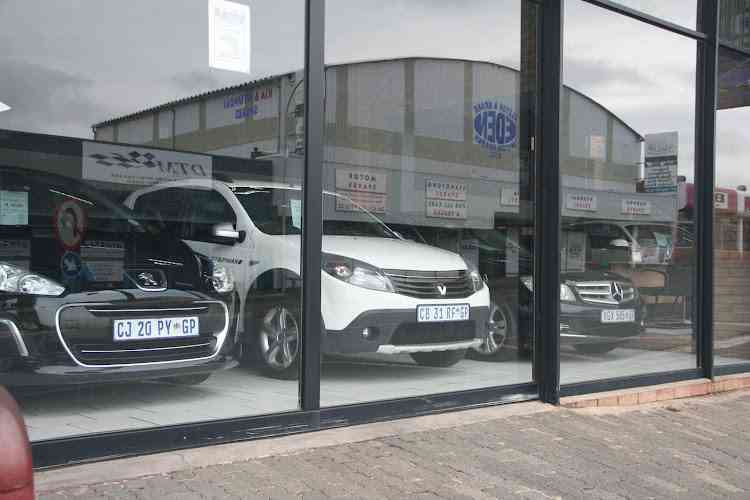
South Africa is the most convenient source of vehicles into Zimbabwe for both brand new and used cars.
The country has a robust motor industry policy that is styled the Motor Industry Development Plan (MIDP) that is responsible for creating a business environment that is conducive for manufacturing and export of cars to flourish. Toyota, Ford, Isuzu, Nissan, Hyundai, Mercedes Benz, BMW, Mahindra and VW manufacturing companies are home to South Africa.
The entire automotive industry is one of their largest economic and export sectors that contributes significantly to its Gross Domestic Product (GDP).
It is this background that creates an ecosystem for the continuous supply of used vehicles that our country and other African nations feed its demands for vehicles.
The South African government policy doesn’t allow grey imports of used cars from Japan like in all other African countries.
The policy has been managed and implemented very well, hence the local consumption of the brand new cars from its manufacturing plants is very high tapping from its population of 63 million people that has over the time created a car population of around 12,1 million vehicles registered and running.
Zimbabwe being neighbours with South Africa makes the delivery lead time to importers of vehicles be the quickest compared to Japan, UK and Thailand.
I know for a fact that the majority of the dealers prefer quicker delivery, which helps them in creating a better turnover while end users are naturally impatient to receive their cars over a month when money is available. So quick delivery is priority number one.
- Mavhunga puts DeMbare into Chibuku quarterfinals
- Bulls to charge into Zimbabwe gold stocks
- Ndiraya concerned as goals dry up
- Letters: How solar power is transforming African farms
Keep Reading
However, while South Africa takes away this advantage compared to other supply markets but there is a dark side that vehicle importers should pay attention to without being blinded by this “quick delivery” benefit.
There are three particular risks exposed to the importers when choosing to buy used cars from South Africa.
Online price scamming
Criminals in South Africa place adverts for fake vehicles online at hugely discounted prices to lure in buyers hunting for a great bargain.
The fake vehicle adverts are relatively sophisticated and usually include photos to match the vehicle description with the contact details of the so-called seller.
Fraudsters appear to be genuine sellers by being willing to provide additional information together with a convincing explanation for the massive discount.
The criminals then pressure buyers into making an urgent deposit or full payment in order to secure the vehicle.
Once payment is made the scammer disappears and the buyer is left without a vehicle and their hard-earned cash.
Therefore, it is important that customers and dealers looking for used cars from South Africa to exercise extreme caution when engaging with unknown individuals online and use whatever means at their disposal to verify the details of the seller and the vehicle being sold.
Buying a car is a serious financial commitment and is a process that shouldn’t be rushed.
My advice is that if anyone wants to import a used car from South Africa is it only safe to do when dealing with a person that you properly know as someone who is credible and honest.
The local dealers should have been the point of help but unfortunately it is a risk route too unless you are 100% sure that they are credible to front your imports for a small fee.
Importing accident damaged vehicles
There is a prevalent of selling unfit and unsafe vehicles by the dealers that are classified as code three cars.
In South African terms the code three cars are those motor vehicles that were involved in an accident before and subsequently declared unfit for use as a motor vehicle.
As an industry standard the motor vehicles will be permanently unfit for use because the extent of the damage includes some structural defects that will require substantial rebuilding.
Such vehicles may not be re-registered in South Africa and hence their market is mostly the foreign countries such as Zimbabwe, Zambia, Malawi and Mozambique that import a lot of used cars.
Buying clones vehicles
Cloning of cars usually involves copying the identity of a legitimate vehicle and applying it to another car.
This typically includes swapping the license plates, VIN numbers, and other identifying information from the legitimate vehicle onto the cloned vehicle.
This can make a stolen vehicle appear to be legitimate.
According to my research the cloning of vehicles in South Africa is a lucrative business that has evolved from the classic tampering of identifiers and introducing the vehicle with false identifiers on registration systems to the sophisticated cloning that is reported to be doing between 3 000 and 5 000 cars each year.
With such a high number of units that gets cloned every year the chances of you buying one without knowing is very high.
However, there are ways you can use to avoid being conned when you are in the market to import a used vehicle from South Africa including;
Ensure that the vehicle you are negotiating to import is registered in the name of the seller.
Be cautious if the registration certificate is recent and if the seller’s “story” or sales pitch does not match what is stated on the registration certificate.
Become suspicious when the seller is insisting on doing a cash transaction or meeting in a public space, or if you cannot confirm the seller’s location.
Ensure the vehicle has all the keys, and the keys unlock all the locks.
Be on the look-out for marks around the dashboard where clips and screws are missing. When vehicles are stolen, they are often stripped to remove tracking devices, resulting in damage to the dashboard.
Compare the dates on components such as safety belts and restraining systems with the vehicle’s year model provided by the seller.
Compare the registration certificate and licence disc with the stamped VIN, as well as the data label of the vehicle. The location will be indicated in the service book and/or manual.
If there is no service book or the first owner’s details have been removed from the service book l advise you to walk away.
If there are any signs that the surface over the stamped VIN was repainted refrain from proceeding with the deal.
Do not rely on a roadworthy certificate as proof that a vehicle was not stolen or badly repaired. Instead, have the vehicle inspected at a reputable garage for your comfort.
Buy from reputable vehicle dealers and do research on the dealership where you intend to buy the vehicle.
If the seller is too quick to accept price negotiations that is strong red flag because prices in South Africa cannot be negotiated extremely because of market prices.
South Africa doesn’t have a well-structured and regulated used vehicle trading and exporting regulations from the government as compared with Japan.
So the risks are very high and you should be very careful how you import or buy the cars physically when in South Africa to avoid losing money.
Buying cloned or accident damaged cars erodes the value in the asset even if you were to keep driving the vehicle. I must however admit that when you buy the cars from the main dealers without such risks the majority of the cars are usually in perfect condition because they are all sold as brand new with a five year maintenance plan as part of the vehicle purchase package.
*Stanley Makombe has 25 years of experience in the motor industry, currently handling vehicle imports from Japan, Thailand, the UK, and South Africa into African countries. He is writing in his capacity and can be contacted on +254 743 900 590, on X @Stan_Carsales, email: [email protected], www.stanleymakombe.com










